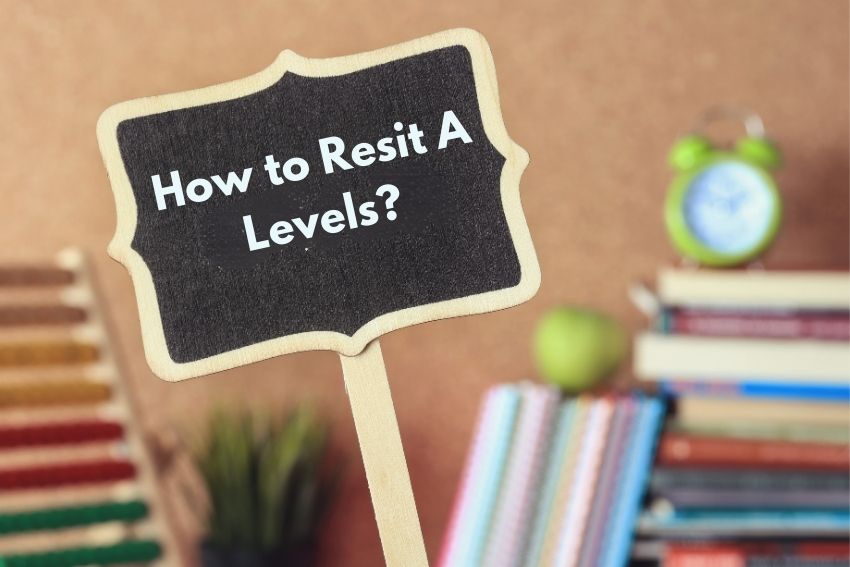After earlier stages like Key Stage 3 and Key Stage 4, Key Stage 5 is the final stage of secondary education in the UK. It covers the final two years of secondary education, where students focus on A Levels, BTECs, T Levels, or other post 16 qualifications. This stage is crucial because it determines university placements, apprenticeships, or career opportunities. Students develop independence, refine their skills, and specialise in subjects that align with their future goals.
In this guide, we’ll break down everything you need to know about key stage 5. From the different education pathways to assessments, study resources, and parental support, also this blog will provide a clear roadmap for students and parents. First, let’s start with what is key stage 5 in details.
What is Key Stage 5?
If you’ve ever wondered what happens after GCSEs, Key Stage 5 (KS5) is the answer. As we already mentioned, this is the final stage of secondary education in England, Wales, and Northern Ireland.
At this stage, students can choose between academic and vocational pathways. Many take A Levels, which are subject-based qualifications ideal for those planning to go to university. Others prefer BTECs, T Levels, or NVQs, which offer a more hands-on, practical approach and can lead to university, apprenticeships, or direct employment.

Why is Key Stage 5 important? Unlike earlier years, KS5 encourages students to develop independent learning skills, manage their workload, and take responsibility for their education. The subjects they choose and the grades they achieve play a huge role in determining their next steps.
Now that you understand what Key Stage 5 is, let’s explore where students study it and how it fits into the education system.
Key Stage 5 Age and Education Settings
By the time students reach Key Stage 5, they are usually 16 to 18 years old. At this point, students have more freedom to choose where and how they continue their studies. There are several options for studying KS5, depending on the student’s goals and preferred learning environment:
Sixth Forms (attached to secondary schools): Many students stay at their current school’s sixth form to continue their education in a familiar setting. These institutions mainly offer A Levels but may provide some vocational courses.
Sixth Form Colleges: These are independent colleges that focus solely on post-16 education. They offer a wider range of A Level and vocational courses, providing a more flexible learning experience.
Further Education (FE) Colleges: FE colleges cater to students who want a mix of academic and vocational courses. They often provide BTECs, T Levels, NVQs, and apprenticeships, offering a more hands-on approach to learning.
Whether a student wants to go to university, start an apprenticeship, or enter the workforce, Key Stage 5 provides the foundation for their next steps.
What is KS5 Curriculum?
Wouldn’t it be interesting to know what students actually learn during this stage? first let’s start with this:
A Levels: The Academic Route
A Levels are one of the most popular choices in Key Stage 5, especially for students planning to go to university. Students typically choose three or four subjects to study over two years. Also, A Level subjects range from maths, sciences, and humanities to creative subjects like art and music. As for assessment, it’s mainly exam based with some coursework in certain subjects.
Vocational Courses: A Practical Alternative
For students who prefer hands-on learning, vocational courses offer a more practical and skills-based approach. These qualifications are designed to prepare students for specific careers or further training.
- BTECs – A mix of coursework and practical assessments, covering fields like business, health, and engineering.
- T Levels – A new qualification that combines classroom learning with industry placements, ideal for students wanting real-world experience.
- NVQs (National Vocational Qualifications) – Focused on job-specific training, often completed alongside work experience or apprenticeships.
Vocational courses are a great option for students who enjoy practical learning and want to enter the workforce with industry-relevant skills.
Choosing the Right Subjects
Picking the right KS5 qualifications is an important decision that depends on a student’s future plans, strengths, and interests. Here are a few things to consider:
- Career Goals – Some careers require specific A Levels or vocational courses (e.g. medicine needs biology and chemistry, while engineering benefits from maths and physics).
- University Requirements – If university is the goal, check the entry requirements for preferred courses. Some degrees require certain subjects at A Level.
- Personal Strengths – Students should choose subjects they enjoy and excel in, as this will make studying more engaging and lead to better results.
Whether you choose A Levels, BTECs, T Levels, or a combination of qualifications, Key Stage 5 provides the flexibility to shape your own learning journey.

Assessment and Grading in Key Stage 5
At Key Stage 5, assessment methods vary depending on the qualification. While A Levels focus on exams, vocational courses combine coursework, practical tasks, and tests. The grading system plays a important role in university admissions and career opportunities.
A Level Assessments: Exam-Based Learning
A Levels are primarily assessed through final exams at the end of two years. Some subjects include coursework, but exams usually determine the majority of the final grade. Subjects like maths, sciences, and history are exam-heavy, while subjects like English and art may involve coursework.
Since university applications rely on predicted and final A Level grades, strong results are essential for competitive courses.
Vocational Course Assessments: Practical and Continuous
Vocational qualifications, such as BTECs, T Levels, and NVQs, assess students through a mix of coursework, practical tasks, and tests. Unlike A Levels, these qualifications measure consistent progress over time rather than relying on one set of final exams.
Key Stage 5 Grading System
A Levels: Graded A to E*, with A as the highest grade*.
BTECs and T Levels: Graded Pass, Merit, Distinction, with some BTECs offering Distinction* for top achievers.
Why Do These Grades Matter?
For University: Most universities set specific A Level or vocational course requirements. Competitive degrees, like medicine and engineering, demand high grades. Some universities accept BTECs and T Levels, but entry requirements vary.
For Careers and Apprenticeships: Employers value vocational qualifications for their practical experience and industry relevance. Strong grades can lead to higher-level apprenticeships or direct employment.
Understanding how Key Stage 5 assessments work helps students choose the right approach for their future.
Preparing for University and Careers
Like we already mentioned in the previous sections – at the end of the KS5 students need to start planning for their future goals. Whether aiming for university, apprenticeships, or direct employment.
Applying to University: The UCAS Process
For students planning to go to university, applications are handled through UCAS (Universities and Colleges Admissions Service). The process includes:
Choosing Courses – Students can apply for up to five university courses, so researching entry requirements is key.
Writing a Personal Statement – This is a important part of the application, where students showcase their skills, experiences, and ambitions. A strong personal statement helps them stand out.
Meeting Deadlines – The main UCAS deadline is usually in January, but applications for medicine, dentistry, and Oxbridge close earlier in October.
After submitting applications, universities review grades, personal statements, and references before making offers. Some students may also need to attend interviews or submit portfolios for specific courses.
Exploring Alternative Career Pathways
University isn’t the only option after Key Stage 5. Many students explore other routes, depending on their career goals and learning preferences:
Apprenticeships: A combination of work and study, allowing students to gain hands-on experience while earning a salary. Higher apprenticeships and degree apprenticeships can lead to professional qualifications or even a degree.
Gap Years: Some students choose to take a year off before university or work to travel, volunteer, or gain work experience. A well-planned gap year can boost personal development and skills.
Direct Employment: Some students move straight into full-time work, especially if they’ve completed vocational courses like BTECs or T Levels that provide industry-specific skills.
What’s the Importance of Work Experience?
No matter what students choose after Key Stage 5, gaining experience outside the classroom is important. Employers and universities look for real-world skills, and work experience helps students build confidence, responsibility, and independence.
- Internships and Placements – These give students a chance to explore different careers and gain practical experience before committing to a job.
- Volunteering – A great way to learn new skills, meet people, and help the community. It also looks good on university and job applications.
- Part-Time Jobs – Working while studying helps students manage time, work in teams, and gain customer service skills, all of which employers value.
Now, let’s simply move onto another important thing you need to know. Which are study resources you need.
Study Resources for Key Stage 5 Students
Studying with the right materials is very important, so you, as a student, need to know some of the reliable resources that help with revision, organisation, and exam preparation. Here are some of the best tools and methods to support learning.
What Are Good Online Study Platforms?
- BBC Bitesize: Provides A Level revision materials, videos, and quizzes, making it easier to understand key topics.
- Quizlet: A great tool for creating flashcards and interactive quizzes to aid memory recall.

Best Books for Key Stage 5 Revision
- CGP A Level Revision Guides: Clear and concise books covering key topics for different A Level subjects.
- Head Start to A Level series: Helps students transition smoothly from GCSEs to A Level studies.
- Collins A Level Study Guides: Subject-specific revision books that include practise questions and worked solutions.
Study Techniques for KS5
- The Pomodoro Technique: A simple method that involves studying in 25-minute bursts with short breaks to stay focused.
- Mind Maps & Flashcards: Great for organising ideas, linking concepts, and improving memory recall.
- Past Papers & Mark Schemes: Practising with past exam questions helps students understand exam formats and common question types.
So, using these mix of online platforms, revision books, and good study techniques will make learning more manageable.
Conclusion
So, you’ve reached key stage 5 – a stage that can feel exciting, but also a little overwhelming. We went through how this stage is crucial for you and for your future. If you want to do well, you need to have right resources to create solid study plan. For that, you can use past papers or revision guides, because it will help you have a clear idea of what’s going on and you will feel less stressed.
Parents, you know that your support also matters, right? If you support your child through this period it will be of course much more easier for them. As a parent, you can check with teachers and career advisors.
If things ever feel overwhelming, don’t worry – extra help is always available. Searching for personalised academic support? online tutors can easily offer you support! A tutor can offer one-on-one guidance, structured revision, and subject-specific support, helping students gain more confidence.
At the end of the day, key stage 5 is what you make of it. Stay organised, explore opportunities, and don’t be afraid to ask for help when needed
You Might Also Find This Interesting
Key Stages and Ages: School Years Made Simple For Parents
BTEC Grades : What You Need to Know?








